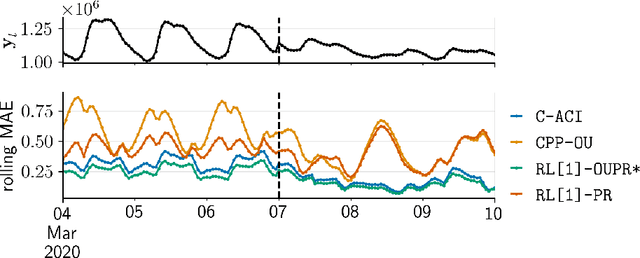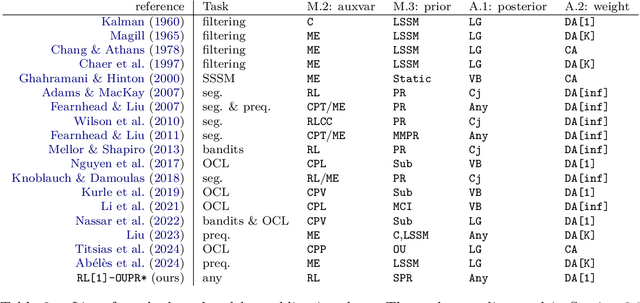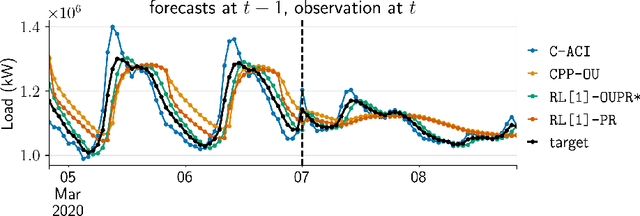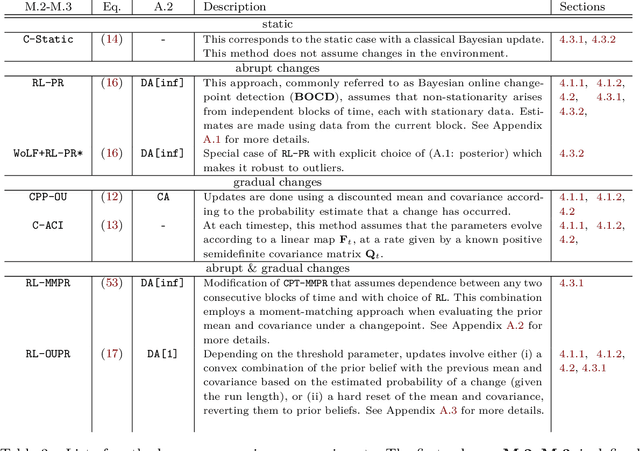BONE: a unifying framework for Bayesian online learning in non-stationary environments
Paper and Code
Nov 15, 2024



We propose a unifying framework for methods that perform Bayesian online learning in non-stationary environments. We call the framework BONE, which stands for (B)ayesian (O)nline learning in (N)on-stationary (E)nvironments. BONE provides a common structure to tackle a variety of problems, including online continual learning, prequential forecasting, and contextual bandits. The framework requires specifying three modelling choices: (i) a model for measurements (e.g., a neural network), (ii) an auxiliary process to model non-stationarity (e.g., the time since the last changepoint), and (iii) a conditional prior over model parameters (e.g., a multivariate Gaussian). The framework also requires two algorithmic choices, which we use to carry out approximate inference under this framework: (i) an algorithm to estimate beliefs (posterior distribution) about the model parameters given the auxiliary variable, and (ii) an algorithm to estimate beliefs about the auxiliary variable. We show how this modularity allows us to write many different existing methods as instances of BONE; we also use this framework to propose a new method. We then experimentally compare existing methods with our proposed new method on several datasets; we provide insights into the situations that make one method more suitable than another for a given task.
 Add to Chrome
Add to Chrome Add to Firefox
Add to Firefox Add to Edge
Add to Edge